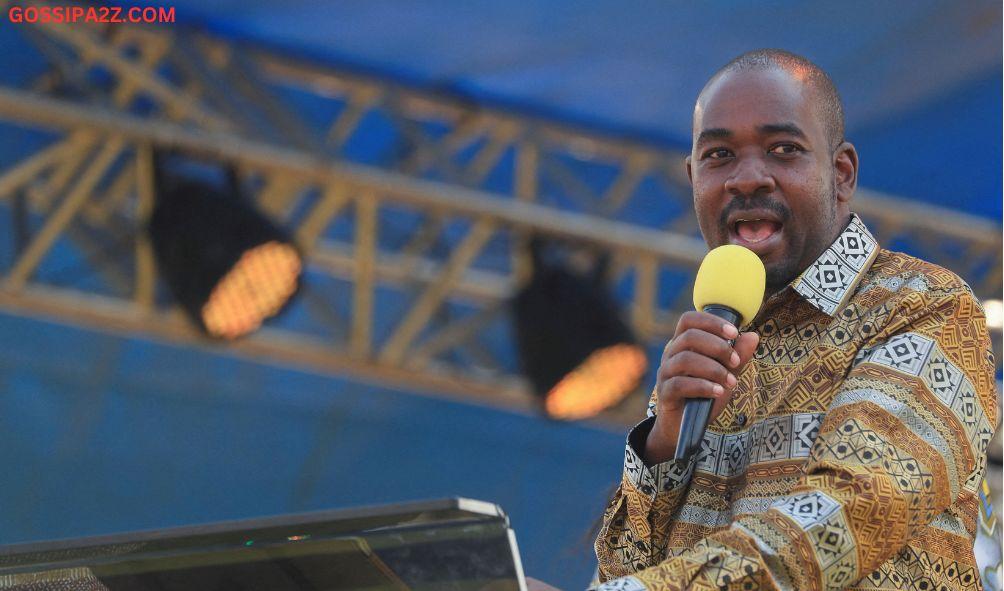Zimbabwe Opposition Challenges President’s Re-Election
Sunday, opposition leader Nelson Chamisa of Zimbabwe contested President Emmerson Mnangagwa’s official re-election and claimed victory in an election that, according to international observers, fell short of democratic standards.
According to official results released late Saturday by the Zimbabwe Electoral Commission (ZEC), Mnangagwa, 80, won a second term with 52.6 percent of the vote, compared to 44 percent for his principal opponent, Chamisa, 45.
The Citizens Coalition for Change (CCC), an opposition group, refused to ratify the results, claiming they were “false.”
“The election has been secured. We lead the pack. We are even astonished that Mnangagwa has been named president, said Chamisa, a lawyer and pastor who heads the CCC and spoke at a press conference in Harare.
Zimbabweans voted for a new president and parliament on Wednesday and Thursday, amid delays that prompted opposition claims of corruption and voter suppression.
ALSO READ: Zimbabwe’s Mnangagwa Secures Controversial Second Term
“We knew the upcoming election would be defective. We’ve a defective voter list and a flawed report on redistricting. We had a defective ballot. “The electoral environment was flawed,” said Chamisa.
Mnangagwa issued a court summons earlier in the day at the presidential palace to those who contested his re-election.
“Those who believe the race was improperly run should know where to go,” he stated.
The election was viewed as a referendum on Mnangagwa’s ZANU-PF party, whose 43-year reign has been accompanied by a sluggish economy and accusations of authoritarianism.
Friday, foreign observers proclaimed that the elections did not adhere to regional and international standards.
Mature Democracy
Observer missions from the European Union, the Commonwealth, and the 16-nation Southern African Development Community (SADC) raised several concerns, including the prohibition of opposition rallies, problems with voter registration records, biased state media coverage, and voter intimidation.
This did not prevent Mnangagwa from congratulating “various election observation missions that have impartially observed our electoral processes.”
Although he also refuted criticism by asserting, “We have demonstrated that we are a mature democracy”
“As a sovereign nation, we continue to request that all visitors respect our national institutions,” he stated.
According to political analyst Rejoice Ngwenya, the CCC has sufficient grounds to challenge the outcome in court.
On the streets of Harare, some individuals voiced their disappointment.
Godwell Gonye told AFP, “The results were unsatisfactory, so something must be amiss.”
Another man, who requested anonymity, admitted he had not carefully examined the results.
“We accept them as they are; it’s the majority’s decision, which we respect,” he said.
Justice Chigumba, chairperson of the ZEC, stated that Mnangagwa received more than 2,3 million votes and Chamisa more than 1,9 million.
With more than fifty percent of the vote, the president avoided a runoff. The commission reported a 69 percent voter participation rate.
The term ‘crocodile’
Mnangagwa, also known as “The Crocodile,” seized control in 2017 after a coup ousted the late dictator Robert Mugabe.
A year later, he narrowly defeated Chamisa for the first time in a fraudulent election that was followed by a violent crackdown.
This time, voting was compelled to extend into a second day for the first time due to printing delays in key districts, including opposition stronghold Harare.
Zimbabwe, a former British colony, achieved independence in 1980 after a protracted guerrilla conflict.
Under Mugabe, however, the nascent democracy descended into authoritarianism and economic decline, with hyperinflation wiping out savings and discouraging investment.
The opposition had hoped to ride a tide of discontent regarding corruption, inflation, unemployment, and entrenched poverty.
Nonetheless, ZANU-PF was also declared the victor in the parliamentary election, securing 136 of the 210 available seats under the first-past-the-post system, compared to the CCC’s 73. A candidate’s demise prevented the assignment of one seat.
Another 60 are allocated for women appointed through a proportional representation party-list system.
Zimbabwe Opposition Challenges President’s Re-Election
